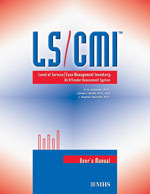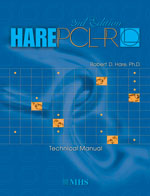
PDS™ French Edition
Paulhus Deception Scales
Filters
The Paulhus Deception Scales (PDS) is a self-report instrument that identifies individuals who, when responding to assessments and rating scales, distort their responses. Designed to be administered concurrently with other instruments, the PDS has been used to successfully identify individuals who might have distorted their responses when completing other clinical and/or personality diagnostic instruments.
Age
- 16 and Older
Administration Type
- Self
Administration Time
- 5 to 7 Minutes
Number of Items
- 40
Qualification Level
- B
Format(s)
- Online
- Handscored
Reading Level
- 5th Grade
- Assesses socially desirable responding both as a response set and a response style
- Contains 40 items that use contemporary, gender-neutral language
- Backed by extensive empirical confirmation of reliability and validity, and is appropriate for both clinical and nonclinical samples
- May also be used in educational and human resource settings and can provide an index for comparing the power of different administration conditions to elicit desirable responding
- Useful in instrument development and evaluation
- Online scoring provides instantly generated reports with statistical, textual, and graphical interpretations of a respondent’s results
Self-Deception Enhancement: The tendency to give honest but inflated self-descriptions
Impression Management: The tendency to give inflated self-descriptions because of contextual factors
These two subscales allow the PDS to capture both principal forms of socially desirable responding. This approach accepts that respondents may display only one kind of desirable responding, or neither, or both.
Scientific Validation
Construct validity issues including evidence for the convergent and discriminant validity of each subscale, are explored in the PDS Manual. Nine supportive studies are summarized demonstrating that the SDE scores are positively associated with objective indicators of distortion (i.e., overconfidence, hindsight bias, over-claiming, and self-inflation). The SDE scores also exhibit positive correlation with self-report and peer-rated measures of adjustment, whereas IM scores show minimal correlation. Scores on the IM scale, however, are more sensitive than SDE scores to situational demands for self-presentation.
The normative sample for the PDS consisted of 1,457 individuals - 441 from the general North American population, 289 college students, 603 prison entrants, and 124 military recruits.

